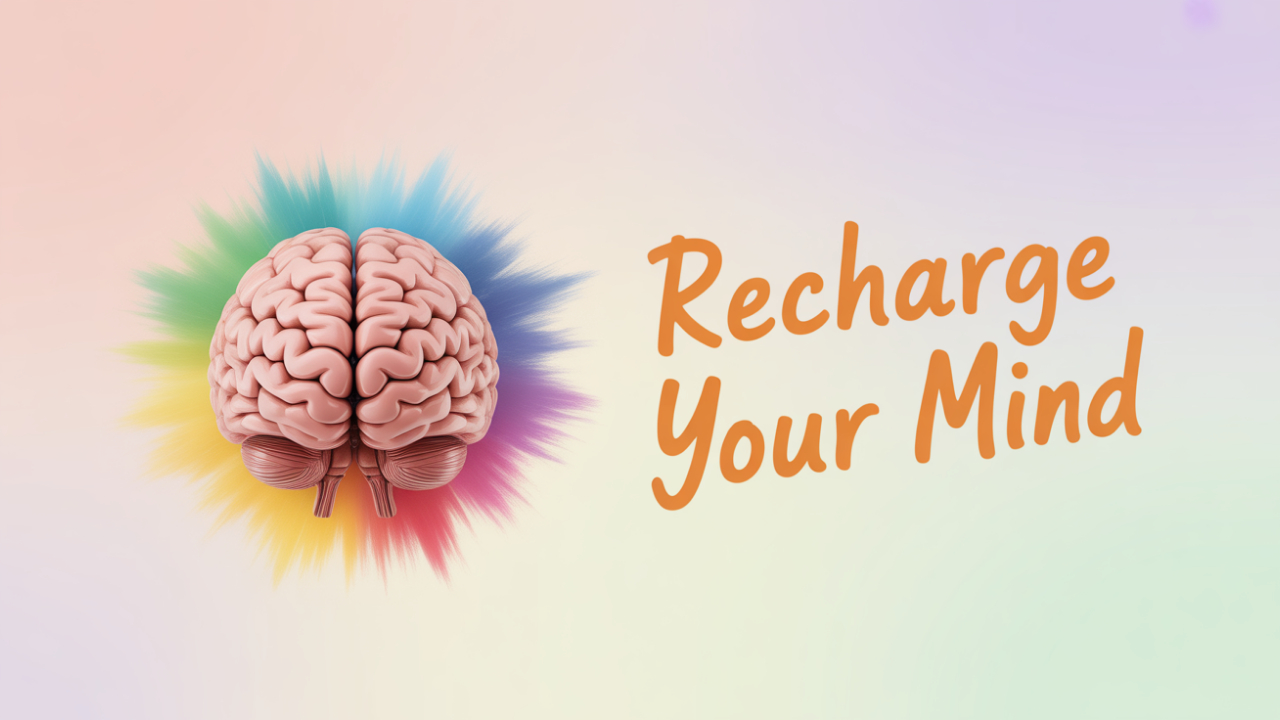Mental Health Days for Students
Academic pressure is real, and it’s mounting. Between demanding coursework, extracurricular commitments, and the constant pressure to excel, students are experiencing unprecedented levels of stress and anxiety. The good news? Mental health days for students are becoming increasingly recognized as an essential tool for managing these challenges.
Mental health days are designated breaks from academic responsibilities that allow students to focus on their emotional and psychological well-being. Unlike sick days reserved for physical illness, these are proactive measures designed to prevent mental health crises and maintain overall wellness. For students navigating everything from STEM programs to college transitions, understanding when and how to take mental health days can be transformative.
This comprehensive guide explores why mental health days are important for students, how to recognize when you need one, and practical strategies for making the most of this vital self-care practice.

The Life-Changing Benefits of Mental Health Days
Reduced Stress and Anxiety
Student mental health support starts with recognizing that chronic stress can severely impact both academic performance and overall well-being. Mental health days provide a crucial reset button, allowing your nervous system to return to baseline levels.
Sarah, a junior in a demanding engineering program, discovered this firsthand. After weeks of pulling all-nighters and living on coffee, she was experiencing panic attacks before exams. Her counselor suggested incorporating regular mental health days into her routine. “The first time I took a full day to just breathe and reset, I felt like I could think clearly again,” Sarah recalls. “My grades actually improved because I wasn’t operating in constant crisis mode.”
Improved Focus and Productivity
Contrary to what many students believe, taking breaks can actually enhance academic performance. When your mind is overwhelmed, your ability to process information, retain knowledge, and think creatively becomes severely compromised.
Mark, a high school student juggling AP classes and varsity soccer, used to pride himself on never taking breaks. However, he noticed his performance declining in both areas. After implementing monthly mental health days, he found his concentration improved dramatically. “I realized I was trying so hard to do everything that I wasn’t doing anything well,” he explains.
Prevention of Burnout
Burnout among students has reached epidemic levels, with symptoms including emotional exhaustion, cynicism about academic work, and feelings of ineffectiveness. Mental health days serve as a preventive measure, interrupting the cycle before it becomes severe.
Research from counseling centers across universities shows that students who regularly take mental health days report significantly lower rates of burnout and higher levels of academic satisfaction.
Enhanced Emotional Well-being
Emily, a college freshman struggling with the transition to university life, initially felt guilty about taking mental health days. “I thought I was being weak or making excuses,” she admits. However, after working with her campus counseling center, she learned that prioritizing emotional well-being was actually a sign of strength and self-awareness.
Regular mental health breaks allow students to process emotions, reflect on their experiences, and maintain perspective on their academic journey.

Recognizing When You Need a Mental Health Day
Understanding the warning signs is crucial for implementing mental health days effectively. Your body and mind provide clear signals when it’s time to step back and recharge.
Persistent Fatigue
Physical exhaustion that doesn’t improve with regular sleep often indicates mental and emotional overload. If you’re consistently waking up tired despite adequate rest, your mind may need a break from academic pressures.
Increased Irritability
Finding yourself snapping at friends, family, or classmates over minor issues is a common sign of stress overload. When your emotional regulation becomes compromised, it’s time to consider taking a mental health day.
Difficulty Concentrating
If you’re reading the same paragraph multiple times or finding it impossible to focus during lectures, your cognitive resources may be depleted. Mental health days can help restore your ability to engage meaningfully with academic material.
Loss of Interest in Activities
When hobbies, social activities, or even favorite subjects begin to feel burdensome rather than enjoyable, this may signal the onset of burnout or depression. Taking proactive mental health breaks can help prevent these feelings from escalating.
Maximizing Your Mental Health Day
The activities you choose for your mental health day can significantly impact its effectiveness. The key is selecting restorative practices that address your specific needs.
Relaxation Techniques
Meditation, deep breathing exercises, and progressive muscle relaxation can help reset your nervous system. Even 10-15 minutes of mindful breathing can provide substantial benefits for stressed students.
Engaging in Hobbies
Reconnecting with activities you enjoy purely for pleasure—not for grades or recognition—can restore your sense of identity beyond academics. Whether it’s painting, gaming, cooking, or playing music, hobbies provide essential mental stimulation without pressure.
Spending Time in Nature
Research consistently shows that time outdoors reduces cortisol levels and improves mood. A walk in the park, hiking, or even sitting in a garden can provide significant mental health benefits.
Connecting with Loved Ones
Social support is crucial for mental health. Use your mental health day to have meaningful conversations with friends or family members who provide emotional support and perspective.
Getting Adequate Sleep
Many students are chronically sleep-deprived. Using a mental health day to catch up on sleep and reset your sleep schedule can have profound effects on your mental clarity and emotional regulation.

Taking Mental Health Days Responsibly
While mental health days are essential, implementing them thoughtfully ensures they enhance rather than hinder your academic success.
Planning Ahead
When possible, schedule mental health days during lighter academic periods or after major deadlines. This proactive approach prevents emergency situations and reduces academic stress.
Communicating with Professors
Many educators are increasingly understanding about student mental health needs. Consider reaching out to professors when you need flexibility, especially if your institution has supportive mental health policies in schools.
Catching Up on Missed Work
Develop a plan for managing any missed assignments or lectures. This might involve connecting with classmates, reviewing recorded lectures, or scheduling brief meetings with professors.
Seeking Professional Help if Needed
If you find yourself needing mental health days frequently or if they’re not providing relief, consider connecting with campus counseling services or a mental health professional. This isn’t a sign of failure—it’s a sign of wisdom and self-advocacy.
Creating Lasting Change Through Self-Care
Mental health days and academic success are not opposing forces—they’re complementary aspects of a sustainable approach to education. Students who prioritize their mental health consistently report better academic outcomes, stronger relationships, and greater life satisfaction.
The benefits of mental health days for students extend far beyond temporary stress relief. They teach valuable life skills including self-awareness, boundary-setting, and proactive self-care that will serve you throughout your academic and professional career.
Remember, taking care of your mental health isn’t selfish—it’s essential. By modeling healthy coping strategies and prioritizing your well-being, you’re not only improving your own life but also contributing to a cultural shift that values the whole person, not just academic achievement.
If you found this guide helpful, consider sharing it with friends who might benefit from understanding the importance of mental health days. Your willingness to prioritize wellness could inspire others to do the same, creating a more supportive academic community for everyone.
For ongoing support and additional resources on student wellness and academic success, explore our comprehensive collection of mental health resources designed specifically for students navigating academic challenges right here.
Frequently Asked Questions
1. What is a mental health day for students?
A mental health day is a planned break from academic responsibilities that allows students to focus on their emotional and psychological well-being. Unlike sick days meant for physical illness, mental health days are proactive tools to manage stress, prevent burnout, and maintain balance. They can involve rest, relaxation, hobbies, or activities that help recharge your mental and emotional energy.
2. How do I know if I need a mental health day?
Some common signs include persistent fatigue, irritability, lack of focus, increased anxiety, or losing interest in activities you normally enjoy. If you feel emotionally overwhelmed, have trouble concentrating, or notice your stress is affecting your relationships or schoolwork, it may be time to step back and prioritize your mental health with a dedicated day of self-care.
3. Will taking a mental health day hurt my academic performance?
On the contrary, taking mental health days responsibly can actually improve academic outcomes. Resting and resetting helps restore focus, memory, and motivation, which often leads to better performance over time. The key is planning ahead when possible and having a strategy for catching up on any missed assignments or lectures.
4. What should I do on a mental health day?
Choose activities that are restorative rather than draining. This could include sleeping in, practicing mindfulness or meditation, spending time in nature, engaging in hobbies you enjoy, or connecting with supportive friends or family. Avoid overloading your mental health day with errands or stressful tasks — the goal is to recharge so you can return to your studies feeling refreshed.









